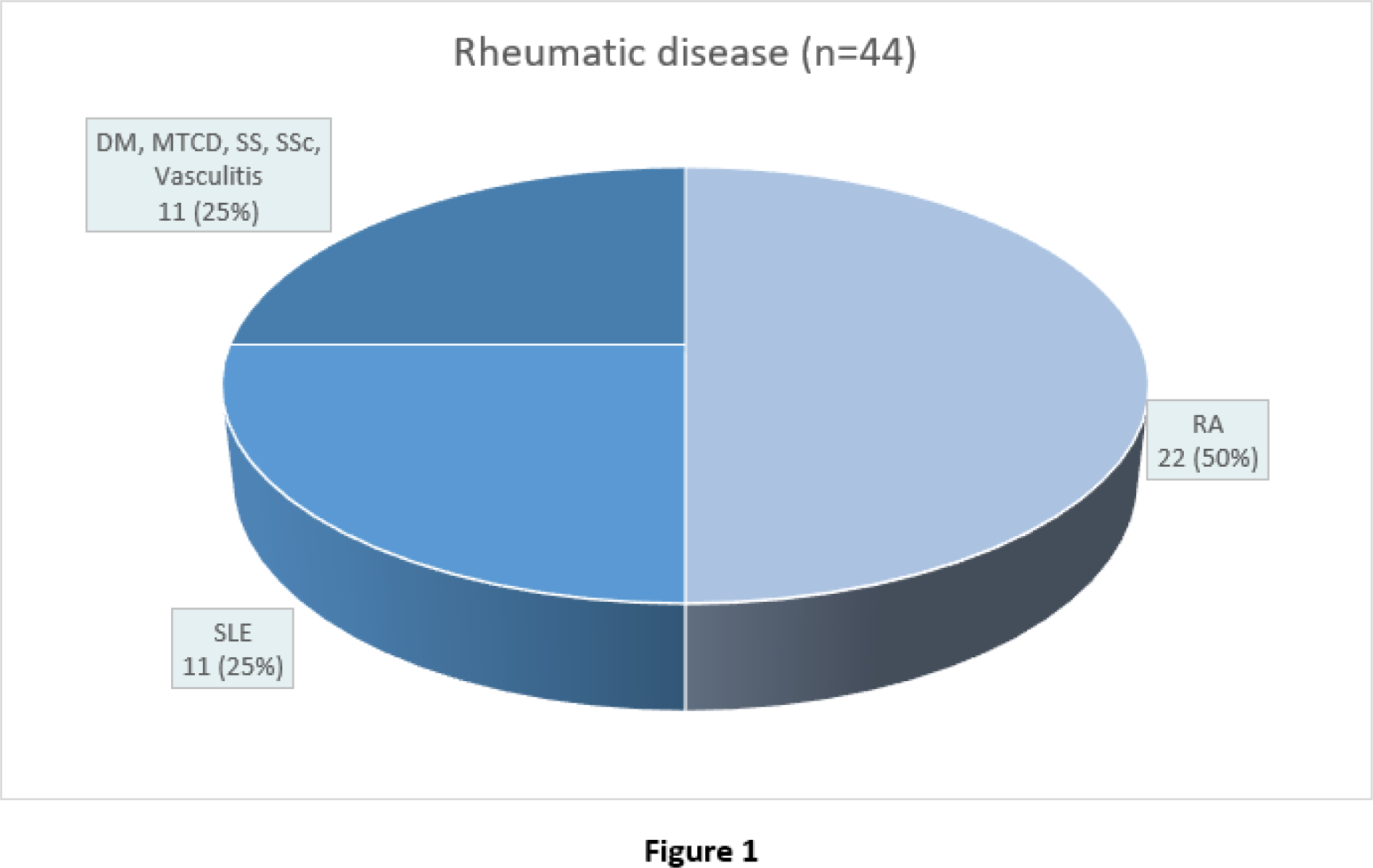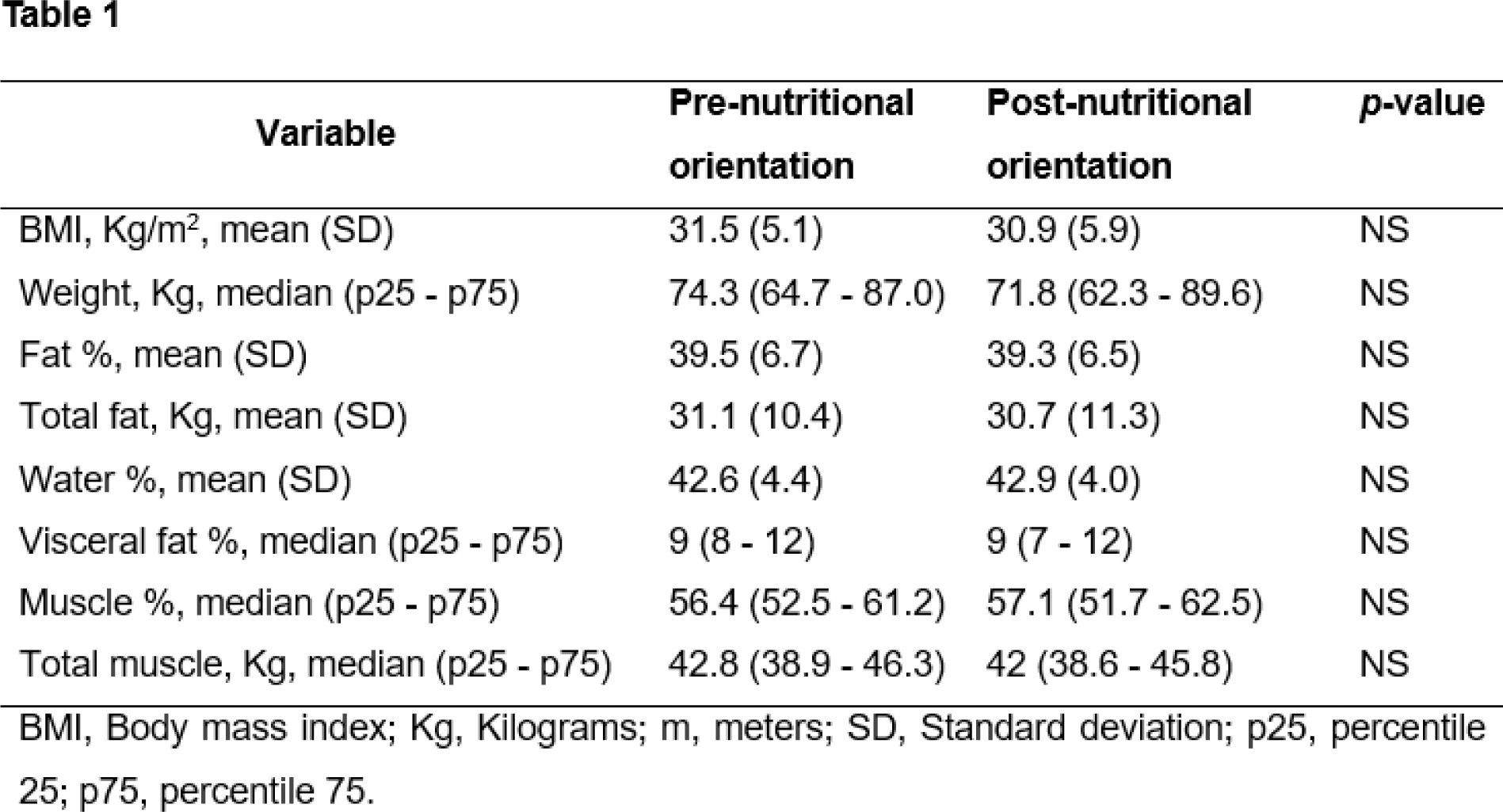

Background: Nutritional orientation should be considered a basic adjuvant to treatment of rheumatic diseases due to its potential positive effects on comorbidities. [1] It can also have a positive impact in disease activity and prevention. [2,3]
Objectives: The aim of this study is to determine the body composition of overweight and obese patients with rheumatic disease before and after nutritional orientation.
Methods: Retrospective, observational, comparative, cohort, single-centre study in an outpatient Rheumatology clinic. Patients with a BMI higher than 25, with diagnosis of a rheumatologic disease, with 3 nutritional assessment consultations were included. Demographics and disease diagnosis was collected from medical records. Bioelectrical impedance analysis was routinely performed with InnerScan TANITA BC-533 monitor in each nutritional consultation. Data from the first and last nutritional assessments were compared. Pregnant women were excluded. Kolmogorov-Smirnov test was used to determine variable distribution. Student’s t-test or Wilcoxon test were used accordingly for comparisons. A value of p<0.05 was considered statistically significant.
Results: A total of 44 patients were included. Women represented 93% of the cohort. Mean age was 50.2 ± 11.2 years. Prevalence of diseases is shown in Figure 1. Body composition before and after nutritional orientation is shown in Table 1. There was no significant difference before and after nutritional orientation in BMI (31.5 ± 5.1 and 30.9 ± 5.9 Kg/m2, p= 0.25), weight (74.3, 64.7 - 87.0 and 71.8, 62.3 - 89.6 Kg, p = 0.43), total fat (31.1 ± 10.4 and 30.7 ± 11.3 Kg, p = 0.68), nor total muscle mass (42.8, 38.9 - 46.3 and 42, 38.6 - 45.8 Kg, p = 0.43).


Conclusion: After 3 nutritional assessment consultations, there was no difference in body composition in overweight and obese patients with rheumatologic diseases. A longer nutritional follow-up may be needed to achieve a significant difference in BMI, weight and fat reduction, and muscle mass increase.
REFERENCES: [1] Dreher M, Kosz M, Schwarting A. Körperliche. Physical activity, exercise and nutrition in rheumatism: Adjuvant treatment options for inflammatory-rheumatic diseases. Orthopade 2019; 48 : 917–926.
[2] Nikiphorou E, Philippou E. Nutrition and its role in prevention and management of rheumatoid arthritis. Autoimmun Rev 2023; 22 : 103333.
[3] Montoya T, Castejón ML, Muñoz-García R, Alarcón-de-la-Lastra C. Epigenetic linkage of systemic lupus erythematosus and nutrition. Nutr Res Rev 2023; 36 : 39–59.
Acknowledgements: NIL.
Disclosure of Interests: None declared.